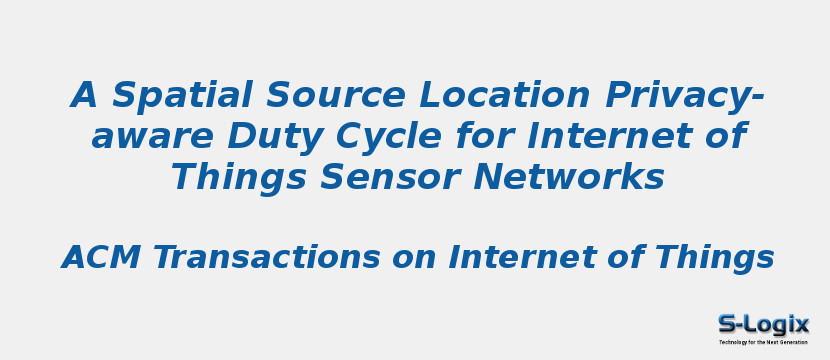Research Area: Internet of Things
Source Location Privacy (SLP) is an important property for monitoring assets in privacy-critical sensor network and Internet of Things applications. Many SLP-aware routing techniques exist, with most striking a tradeoff between SLP and other key metrics such as energy (due to battery power). Typically, the number of messages sent has been used as a proxy for the energy consumed. Existing work (for SLP against a local attacker) does not consider the impact of sleeping via duty cycling to reduce the energy cost of an SLP-aware routing protocol. Therefore, two main challenges exist: (i) how to achieve a low duty cycle without loss of control messages that configure the SLP protocol and (ii) how to achieve high SLP without requiring a long time spent awake. In this article, we present a novel formalisation of a duty cycling protocol as a transformation process. Using derived transformation rules, we present the first duty cycling protocol for an SLP-aware routing protocol for a local eavesdropping attacker. Simulation results on grids demonstrate a duty cycle of 10%, while only increasing the capture ratio of the source by 3 percentage points, and testbed experiments on FlockLab demonstrate an 80% reduction in the average current draw.
Keywords:
Author(s) Name: Matthew Bradbury , Arshad Jhumka , Carsten Maple
Journal name: ACM Transactions on Internet of Things
Conferrence name:
Publisher name: ACM
DOI: 10.1145/3430379
Volume Information: Volume 2,Issue 1,February 2021, Article No.: 4,pp 1–32
Paper Link: https://dl.acm.org/doi/10.1145/3430379
